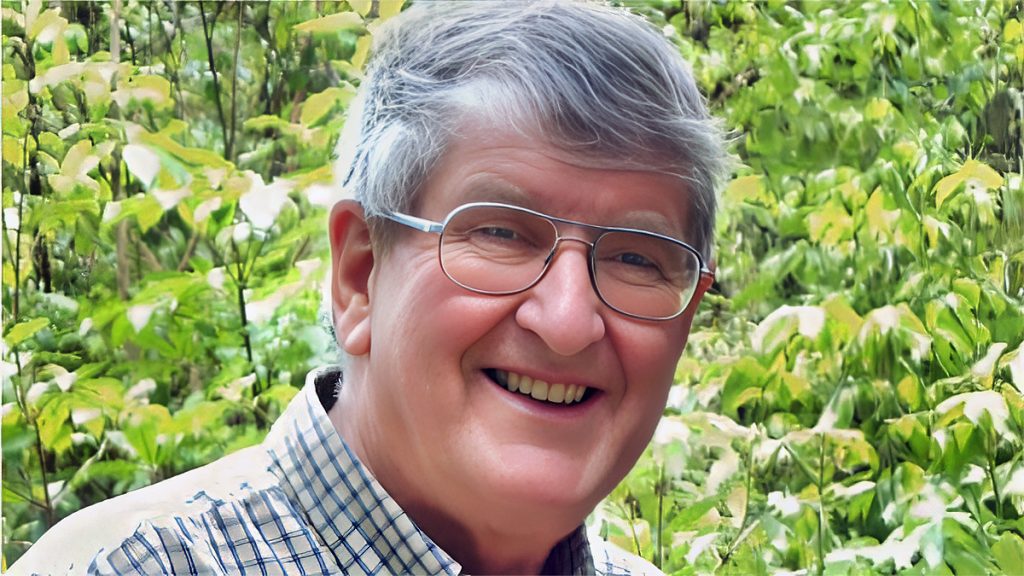I have just finished reading Hope, the autobiography of Pope Francis, which is a brilliant, easily read book and gives vital clues as to how to maintain hope in a time of world insecurity.
I was conscious that while I am reasonably up to date on various crises around the world, including within the Church, Francis had a hundred more crossing his desk every day. Yet depression never seemed to affect him.
He emerges as a huge figure of hope for the future—if we take corrective action now.
A life of service
In his book, Francis shares deep reflections on his Italian roots, his childhood in Argentina, his calling to ministry, and follows his adult life as a priest, a bishop and archbishop working in the slums, and finally his 12-year tenure as the 266th Bishop of Rome.
He writes of hope even as he travels to wars and conflicts all over the globe and ventures into countries, many war-torn and desperate. In all, he made 47 overseas trips, visiting 66 countries.
A voice against violence
He was moved and deeply troubled by what he saw—the violence, the senseless wars, the wasted lives, the money used on arms purchased to simply go and kill people who are perceived to be different. He rails against violence and war in nearly every chapter, devastated as he was by what he was seeing and hearing on a daily basis.
An example to illustrate:
“In the Congo, I kiss the hands and feet that have been chopped off. I stroke heads. Listen to signs. I admire the courage of these testimonies. Their tears are my tears. Their pain my pain. Enough! Enough! Enough of the atrocities which cast shame on the whole of humanity.”
The war in the Congo has brought over 5 million deaths since the end of the 1990s. It is the largest conflict since World War II. It has left wounds unhealed for years, over which, with the scandalous interference of multinational companies and foreign powers, ethnic forces fight to the death over natural resources and power.
The meaning of hope
What is hope? Hope is a spiritual gift, the belief that God, the Creative Loving Presence in the Universe, is with us all the time, in good times and bad—even in our very worst experiences.
That belief is not restricted to Church members or religious people alone. It is a gift available to all, regardless of official affiliations, and is shared by many who have no religious ties but are blessed with good hearts and open spirits.
Optimism, though closely related, is different. It reflects a general attitude of well-being toward the future regardless of the odds. Useful though it is, optimism is built on more precarious grounds and lacks the spiritual depth and divine connection. Hope, however, is the gift that keeps on giving, even in our darkest hours.
Witnesses of hope
I am often reminded of Anne Frank, the teenage Jewish girl who wrote The Diary of Anne Frank, which became a spiritual classic.
During the German occupation of Holland in World War II, she was holed up in an attic in a family friend’s house in Amsterdam. Trapped with her family for fear of the Nazis, she kept a journal of hope.
Just before her arrest and deportation to Bergen-Belsen, where she died of typhus, she wrote:
“In spite of everything, I still believe that people are really good at heart….I see the world gradually being turned into a wilderness. I hear the ever-approaching thunder, which will destroy us too. I can feel the sufferings of millions and yet, if I look up to the heavens, I think it will all come right.”
And Patriarch Michel Sabbah, former Latin Patriarch of Jerusalem, writes:
“We must carry one another if we are to go forwards. We must use our imaginations rooted in Christ, to find openings where there appear to be none. When we have reached the limits of our hope, together we carry one another as we turn to God and ask for help.”
Our shared humanity
We live in an age of tremendous upheaval. Even in our own country, many of the safeguards of the past have been eroded and not replaced.
In Aotearoa, the public health service would be a classic case of a wonderful community institution being eroded by huge underfunding and greater placement in private hands. The poor are always the first to suffer.
We have structured our society into those who can achieve and those who will fail—not through lack of ability, but through lack of access to resources. The gap is widening here in New Zealand and globally.
As Pope Francis points out in his book, the temptation to say nothing can be done is not one that Christians can hold. He kept planting seeds of hope wherever he went, in every public action and virtually every address. His autobiography is full of hope.
Small things matter
After being imprisoned for peaceful protest, living through the Great Depression and facing World War II, Dorothy Day wrote:
“Certainly when I lie in jail thinking of these things, thinking of war and peace and the problems of human freedom… and the apathy of the great masses of people who believe that nothing can be done, I am all the more confirmed in my faith in the little way of St. Thérèse. We do the minute things that come to hand, we pray our prayers and beg also for an increase of faith—and God will do the rest.”
This visionary faith led her to the founding of the Catholic Worker movement, which has spawned more than 200 houses of hospitality around the world (including six in New Zealand), committed to pacifism, hospitality to the poor, voluntary poverty, and non-violence as a way of life.
Conclusion
Hope is the belief that even small things are important. We all have a role to play, as Dorothy Day suggests. It might seem tiny and inconsequential, but added to a million similar actions, it builds a bigger mosaic of goodness, justice, and peace-making.
Of such is the Reign of God in our time.

- Jim Consedine is a presbyter of the Christchurch Diocese in New Zealand. For 30 years he has published “The Common Good” a quarterly paper of the Catholic Worker. Republished with permission.

